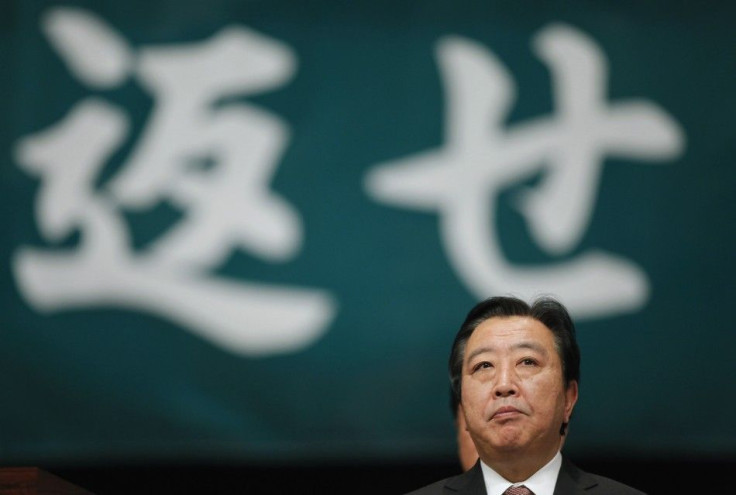Fitch Warns Japan Of Downgrade If Debt Is Not Lowered
Parliamentary paralysis, scirmishing cited as obstacle to progress

Japanese Prime Minister Yoshihiko Noda survived a no-confidence vote on Thursday, spurred by his proposal to double the consumption tax to 10 percent, in the latest example of a political gridlock that is risking a credit downgrade.
A majority of the MPs in the lower house of the Diet, Japan's Parliament, rejected the motion put forward by six smaller opposition parties on Tuesday, who say the ruling Democratic Party of Japan DPJ) has done an about-face on a 2009 pledge not to raise taxes.
The tax increase would raise the equivalent of 2.5 percent of the country's gross domestic product, according to Fitch Ratings, which on Thursday said the tax dispute underscores the problems Japan is having in its attempts at fiscal consolidation, which it called "limited" and "leisurely."
"The capacity of the Japanese political system to deliver fiscal consolidation remains a key component of our ratings analysis," the Fitch statement said. "The sovereign continues to enjoy exceptionally strong funding conditions, with yields on 10-year Japanese government bonds of around 0.8%."
The political rancor has stymied the country's progress toward paying down government debt, which is estimated to be 225 percent of GDP as of the end of 2011. Fitch said Japan needs to implement policy measures to address the debt situation.
"Without these, the risk that the Japanese sovereign's funding strength could be undermined would increase, and the rating could be downgraded further," the report added.
In May Fitch downgraded Japan to "A+," which brought its bonds down from High to Upper medium, both of which are investment grade.
Earlier this month the International Monetary Fund warned that the country's banks are over-invested in Japanese government bonds following years of weak borrowing and deflation.
© Copyright IBTimes 2025. All rights reserved.






















